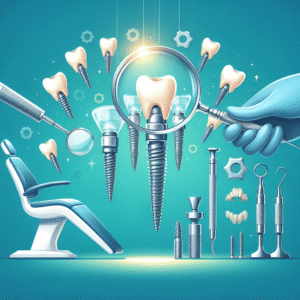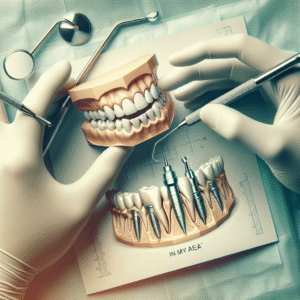All-on-4 Dental Implant Procedure Insurance Coverage
Dental health is a critical aspect of overall well-being, and for individuals suffering from extensive tooth loss or severe decay, Full-Arch Dental Implants offer a revolutionary solution. Among the most advanced techniques in restorative dentistry is the All-on-4 dental implant procedure, which provides a stable, permanent, and aesthetically pleasing alternative to traditional dentures. However, one of the most pressing concerns for patients considering this treatment is whether their insurance will cover the costs. This article explores All-on-4 dental implant insurance coverage, the factors influencing reimbursement, and alternative financing options.
Understanding the All-on-4 Dental Implant Procedure
The All-on-4 dental implant procedure is a cutting-edge technique designed to replace an entire arch of missing teeth using just four strategically placed implants. Unlike conventional dentures, which can slip or cause discomfort, Implant-Supported Dentures anchored by All-on-4 implants provide superior stability and functionality.
Key Benefits of All-on-4 Implants
- Teeth-in-a-Day / Same-Day Implants: Patients can often receive temporary prosthetic teeth immediately after implant placement, eliminating the need to go without teeth during healing.
- Reduced Need for Bone Grafting: The All-on-4 technique maximizes existing bone structure, often avoiding the need for Bone Grafting for Dental Implants.
- Long-Term Durability: These implants fuse with the jawbone, preventing bone loss and maintaining facial structure.
- Natural Appearance and Function: Patients regain the ability to eat, speak, and smile with confidence.
For those with insufficient jawbone density, Zygomatic Implants—longer implants anchored in the cheekbone—may be recommended as an alternative.
Does Insurance Cover All-on-4 Dental Implants?
Insurance coverage for Full-Arch Dental Implants varies widely depending on the provider, policy type, and individual circumstances. While dental implants are increasingly recognized as a standard of care, many insurers still classify them as a cosmetic or elective procedure, limiting coverage.
Factors Affecting Insurance Coverage
-
Policy Type
- Dental Insurance: Most traditional dental insurance plans offer partial coverage for implant-related procedures, such as extractions or diagnostic imaging, but may exclude the implants themselves.
- Medical Insurance: In cases where tooth loss results from trauma, congenital defects, or medical conditions (e.g., oral cancer), medical insurance may contribute to costs.
-
Diagnosis and Necessity
- If tooth loss severely impacts chewing function or oral health, insurers may consider Implant-Supported Dentures medically necessary.
- Documentation from a dentist or oral surgeon justifying the need for implants can strengthen claims.
-
Annual Maximums and Deductibles
- Many dental plans have annual coverage limits (e.g., $1,000–$1,500), which may only partially offset the total cost of All-on-4 implants.
-
Pre-Authorization Requirements
- Some insurers require pre-approval before proceeding with major procedures. Failure to obtain authorization may result in denied claims.
Common Coverage Scenarios
- Partial Coverage: Some plans cover preparatory procedures (e.g., extractions, <stro
Bone Grafting for Dental Implants) but not the implants themselves.
- Discount Plans: Certain discount dental programs offer reduced fees for implant procedures at participating providers.
- Medicare and Medicaid: Medicare typically does not cover dental implants, while Medicaid coverage varies by state and may be limited to medically necessary cases.
Maximizing Insurance Benefits for All-on-4 Implants
To improve the likelihood of reimbursement, patients should:
-
Review Their Policy
- Carefully examine plan documents or contact the insurer to clarify covered services.
- Ask about exclusions related to Full-Arch Dental Implants or Zygomatic Implants.
-
Obtain a Pre-Treatment Estimate
- Submit a detailed treatment plan to the insurer for a cost breakdown and pre-determination of benefits.
-
Appeal Denied Claims
- If a claim is denied, patients can appeal with additional documentation, such as X-rays, physician notes, or peer-reviewed studies supporting the medical necessity of Teeth-in-a-Day / Same-Day Implants.
Alternative Financing Options
For patients with limited or no insurance coverage, several financing solutions can make All-on-4 implants more accessible:
- Payment Plans: Many dental clinics offer in-house financing with low or no interest.
- Healthcare Credit Cards: Options like CareCredit provide short-term, interest-free payment plans.
- Flexible Spending Accounts (FSAs) or Health Savings Accounts (HSAs): Pre-tax funds can be used for eligible dental expenses.
- Dental Schools: Some institutions offer discounted rates for procedures performed by supervised students.
The Long-Term Value of All-on-4 Implants
While the upfront cost of Implant-Supported Dentures may seem high, their longevity and health benefits often justify the investment. Unlike traditional dentures, which require frequent adjustments or replacements, All-on-4 implants can last decades with proper care, reducing long-term expenses.
Cost Comparison: Implants vs. Traditional Dentures
| Factor | All-on-4 Implants | Traditional Dentures |
|---|---|---|
| Lifespan | 20+ years | 5–10 years (requires replacement) |
| Bone Preservation | Prevents jawbone loss | Accelerates bone resorption |
| Functionality | Near-natural bite strength | Limited chewing efficiency |
| Maintenance | Brush like natural teeth | Adhesives, soaking required |
Conclusion
Navigating All-on-4 dental implant insurance coverage requires careful research and proactive communication with insurers. While not all plans fully cover Full-Arch Dental Implants, partial reimbursements, financing options, and the long-term benefits of Teeth-in-a-Day / Same-Day Implants make this life-changing procedure attainable for many patients. Consulting with a knowledgeable dental provider and insurance specialist can help maximize benefits and ensure a smooth journey toward a restored smile.
For those considering Zygomatic Implants or other advanced solutions due to bone loss, exploring multi-disciplinary insurance claims (combining dental and medical coverage) may provide additional financial relief. Regardless of coverage, investing in Implant-Supported Dentu
res is an investment in lasting oral health, confidence, and quality of life.
Frequently Asked Questions
FAQ: All-on-4 Dental Implant Procedure Insurance Coverage
1. Does dental insurance typically cover the All-on-4 implant procedure?
Most dental insurance plans offer partial coverage for All-on-4 implants, but full coverage is rare. Coverage often depends on your plan’s specifics and whether the procedure is deemed medically necessary.
2. What factors influence insurance coverage for All-on-4 implants?
Factors include your insurance provider, plan type, the reason for the procedure (cosmetic vs. medical necessity), and any pre-existing conditions. Some insurers may cover related treatments like extractions or bone grafts.
3. How can I verify if my insurance covers All-on-4 implants?
Contact your insurance provider directly and ask about coverage for “full-arch dental implants” or “All-on-4.” Request a pre-authorization or written estimate to confirm benefits.
4. Are there alternative financing options if my insurance doesn’t cover All-on-4?
Yes, many dental clinics offer payment plans, financing through third-party lenders, or discounts for upfront payments. You can also explore medical credit cards or health savings accounts (HSAs).




